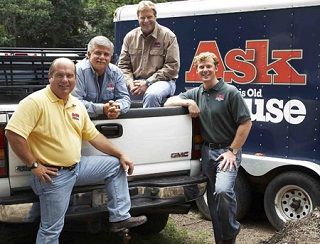Billionaire Peter Thiel on CleanTech

• The rise of the financial industry over the past few decades came largely at the expense of science and technology, and (more…)

• The rise of the financial industry over the past few decades came largely at the expense of science and technology, and (more…)
As indicated here, Goldman Sachs is bullish on water, based on the fact that the obvious factors affecting supply and demand are already beginning to drive the price up. When you think about it, there are several factors conspiring to limit supply, e.g., pollution and climate disruption, and there are no substitute goods; it’s not like we can simply start drinking something else.
It’s possible, of course, that cost-effective technologies for desalination and purification will be evolved soon, but it’s hard to imagine such technologies that operate in the absence of fairly intense amounts of power. This is one of the many reasons that it sure would be terrific if, in addition to solar, wind, and the rest, we could develop advanced nuclear.


These Koch boys are taking an awful drubbing in the press, though. When one looks at articles like this one in Rolling Stone magazine, and the highly successful film documentary “Koch Brothers Exposed” one wonders how effective these PR campaigns could possibly be.

Whenever it’s possible to mention energy efficiency or solar energy, the plumbing and heating guy, Richard Trethewey (pictured on left), normally dives right in. (more…)

Here, for instance, we have Shell Oil’s attempt to use Lego as a tool to clean up the horrible image it created for itself with its exploitation of the arctic. As this video goes viral, Lego is under increasing pressure to disassociate itself from Shell, a move I predict they’ll make quite soon.

Here’s an article on the ever-accelerating progress that solar PV is making, as costs continue to plummet. It certainly makes one wonder about the so-called “utility death spiral,” in which traditional power companies become unable to function, by virtue of customer defection in favor of PV (or methane fuel cells, or whatever else).
Pundits aren’t too worried about this, on the basis that we have plenty of time to figure out a solution. I’m not at all sure that’s true. And that’s the essential theme of my current book project (Bullish on Renewable Energy – Eleven Reasons Why Clean Energy Investors Can’t Lose), i.e., that pure market economics will soon hit a tipping point, at which time everybody and his dog will go to renewable energy.

But if that means that you have to curb your enthusiasm for decorating your home in a stylish and contemporary way, think again. There are numerous ideas out there, though I wish there were more. Here are only six ideas that will help you decorate your home in a fun, stylish, and green manner. (more…)